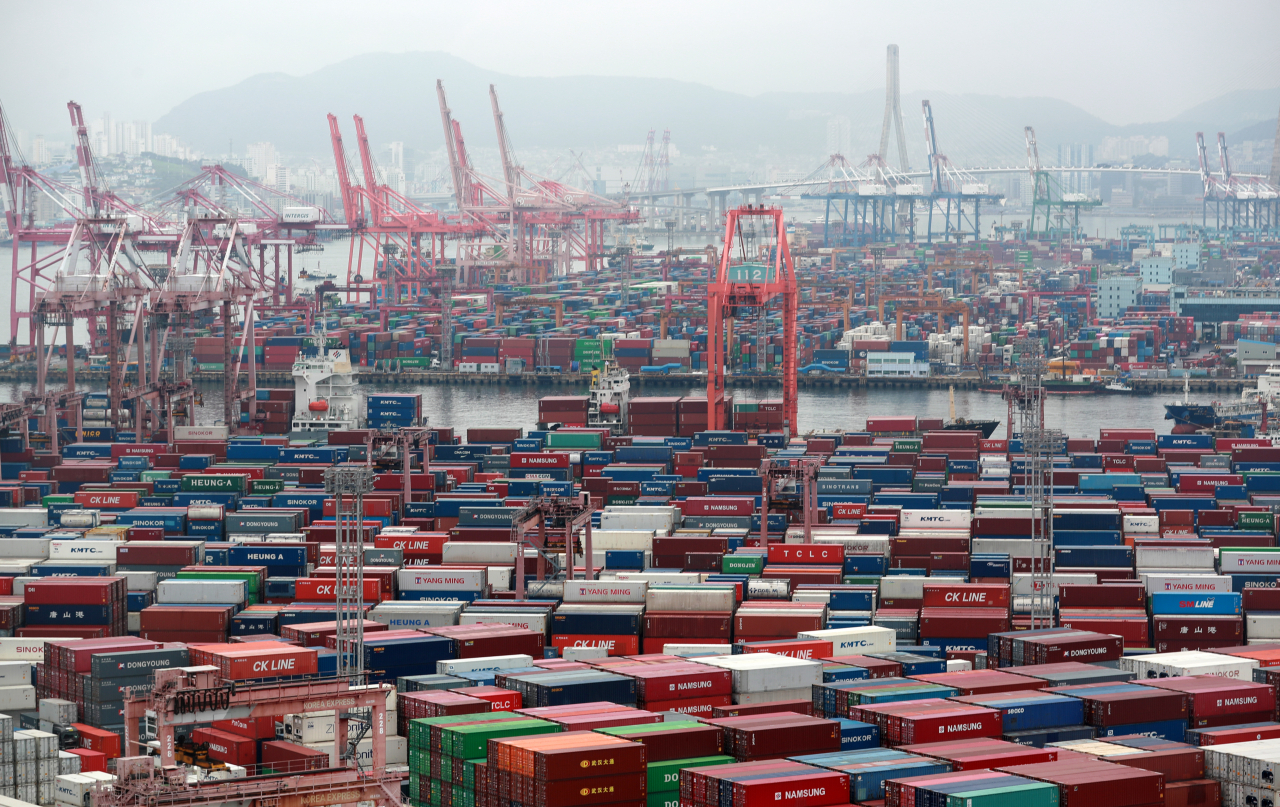S. Korean economy feared to slow down amid external uncertainty: govt.
By YonhapPublished : July 20, 2022 - 10:32

The South Korean economy is feared to slow down, as inflationary pressure has mounted and export growth could lose steam amid deteriorating external economic conditions, the finance ministry said Wednesday.
Market volatility and global economic downside risks further increased, led by the Federal Reserve's fast rate hikes, China's economic slowdown, and the protracted war between Russia and Ukraine, the ministry said in its monthly economic assessment report, called the Green Book.
"Domestic demand has been on a mild recovery track on improvement in the job market and a rebound in in-person services. But there are concerns about the economic slowdown, as inflation picked up and export growth could be dented due to worsened external economic conditions," the report said.
Concerns about stagflation, a mix of slumping growth and high inflation, have increased due to heightened external economic uncertainty.
Inflationary pressure has rapidly built up, as crude oil and commodity prices have soared due to Russia's invasion of Ukraine and continued supply chain disruptions. A recovery in demand from the pandemic also pushed up price pressure.
South Korea's consumer prices jumped 6 percent in June from a year earlier, the fastest rise in nearly 24 years and accelerating from a 5.4 percent spike in May.
Volatility in the financial market has increased on fears the Fed's aggressive monetary tightening could cause the US economy to slip into a recession. The South Korean currency has slid more than 9 percent against the US dollar so far this year.
Exports, the main driver of Korea's economic growth, rose 5.4 percent on-year in June, extending their gains to the 20th month. But high oil prices pushed up the country's imports, resulting in a trade deficit for the third straight month.
The ministry report showed sales at department stores and card spending rose, as relaxed virus curbs boosted outdoor activity.
Card spending rose 17 percent on-year last month, marking the 17th straight month of gains. Sales at department stores rose 16.5 percent on-year in June.
But domestic sales of autos dropped 7.2 percent, extending their falls into the fourth month.
In June, the government lowered its 2022 economic growth outlook to 2.6 percent from its earlier forecast of 3.1 percent. It sharply raised this year's inflation outlook to a 14-year high of 4.7 percent from 2.2 percent. (Yonhap)



![[AtoZ into Korean mind] Humor in Korea: Navigating the line between what's funny and not](http://res.heraldm.com/phpwas/restmb_idxmake.php?idx=644&simg=/content/image/2024/04/22/20240422050642_0.jpg&u=)
![[Exclusive] Korean military set to ban iPhones over 'security' concerns](http://res.heraldm.com/phpwas/restmb_idxmake.php?idx=644&simg=/content/image/2024/04/23/20240423050599_0.jpg&u=20240423183955)



![[Graphic News] 77% of young Koreans still financially dependent](http://res.heraldm.com/phpwas/restmb_idxmake.php?idx=644&simg=/content/image/2024/04/22/20240422050762_0.gif&u=)
![[Herald Interview] Why Toss invited hackers to penetrate its system](http://res.heraldm.com/phpwas/restmb_idxmake.php?idx=644&simg=/content/image/2024/04/22/20240422050569_0.jpg&u=20240422150649)






![[Exclusive] Korean military to ban iPhones over security issues](http://res.heraldm.com/phpwas/restmb_idxmake.php?idx=652&simg=/content/image/2024/04/23/20240423050599_0.jpg&u=20240423183955)



![[Today’s K-pop] Ateez confirms US tour details](http://res.heraldm.com/phpwas/restmb_idxmake.php?idx=642&simg=/content/image/2024/04/23/20240423050700_0.jpg&u=)